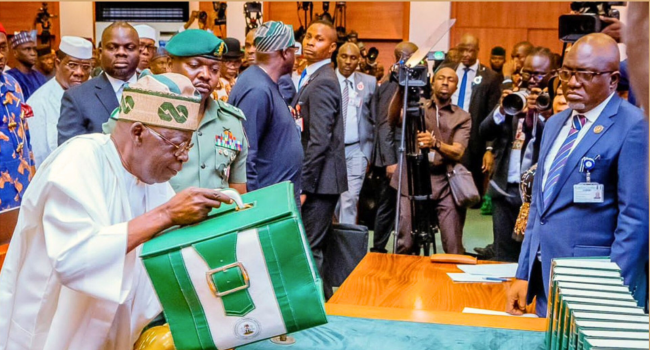As most states of the federation unveiled their budgets for 2025, civil society organisations have tasked state governments to prioritise critical infrastructure in education, health, agriculture and other crucial sectors.
Before President Bola Tinubu presented the N49.74 trillion 2025 budget (Appropriation Bill) to the National Assembly, most state governments had laid before their various State Houses of Assembly, the budget for next year.
For instance, Governors Nasir Idris of Kebbi State presented the 2025 budget estimates of over N580 billion, Hyacinth Alia of Benue State presented a budget estimate of N550 billion and Babajide Sanwo-Olu of Lagos presented the sum of N3.005 trillion before their State Houses of Assembly.
Also, Governors Peter Mbah of Enugu State presented a 2025 budget proposal of N971 billion to the State House of Assembly, Governor Umo Eno of Akwa Ibom State presented the 2025 Appropriation Bill of N955 billion and Governor Babagana Zulum of Borno State presented the 2025 budget of N584.76 billion to their State Houses of Assembly.
Tinubu Prioritizes Security With Record N4.91trn Allocation In 2025 Budget
Speaking with LEADERSHIP Weekend, the assistant programme officer of BudgIT Foundation, Victoria Opusunju, said state governments must prioritise critical infrastructure in the education and health sectors.
She said: “As the 2024 fiscal year ends, states across the federation have begun the annual process of presenting their proposed budgets for the upcoming fiscal year to their respective State Houses of Assembly. These budgets serve as a reflection of each governor’s priorities and fiscal discipline for the year ahead.
“According to BudgIT’s 2024 State of States Report, the total expenditure across all 36 states in 2023 amounted to N9.78 trillion, comprising N1.99 trillion for personnel costs, N1.52 trillion for overhead costs, and N4.04 trillion for capital expenditure.
Capital expenditure is expected to remain a significant portion of state budgets in 2025, as it was in 2023.
“However, state governments must prioritise critical infrastructure in the education and health sectors. For instance, in 2023, the cumulative spending by all 36 states on health was N1.39 trillion. Of this, N35.72 billion was allocated for purchasing medical equipment, and N104.27 billion was spent on constructing and rehabilitating hospitals and clinics, representing only 10.07% of total health expenditure.
“On revenue generation, states such as Imo, Taraba, Yobe, Bayelsa, and Jigawa need to intensify efforts to boost their internally generated revenue (IGR) in 2025 and the quality of implementation of capital expenditure.
“Given the size of their operating expenses, these states are heavily reliant on federally distributed revenue, which poses a challenge to their financial sustainability. Improving their capital expenditure implementation will be crucial for improving their fiscal resilience and boosting their economies.”
On his part, the executive director, Health of Mother Earth Foundation (HOMEF), Nnimmo Bassey said state governments should, before budget preparations, visit local areas to find out what the people really need and then budget to meet those things while prioritising agriculture, health and education sectors.
“What state governments should consider when drawing budget is to visit the local governments to find out what the people really want and then budget to meet those things. Things like agriculture; they should budget to increase the number of extension officers in this country, budget to support small scale farmers, budget for rural infrastructure.
“For national development, you can’t ignore that. These are the easiest things for people to see but they should also invest in the health and education of our people. Without the children being educated, without the health of the people, they’ve lost it,” he said.
To the programme manager, Social Action Nigeria, Isaac Botti, state governments should focus on improving access to basic facilities and services such as education, food security, among others.
He said, “I think what governments of the various states should focus on is, improving access to basic facilities and services such as education. So, we expect state governments to prioritise investment in education.
“Nigeria has one of the highest rates of out of school children at the moment. So, what can be done to take them away from the streets and bring them back to school? They should invest in health which I think is critical and a very fundamental area of human needs.
“We expect their budget to prioritise the health and well being of the people. Then, food sufficiency; Nigerians are groaning. There is high rate of inflation which can cause food scarcity. Once people don’t have money to buy food then, it has become scarcity.
“So what are they bringing in to invest in that critical sector like agriculture and other sectors that can empower the people so that it can cushion the current effect of hardship on Nigerians through their budget implementation.”

